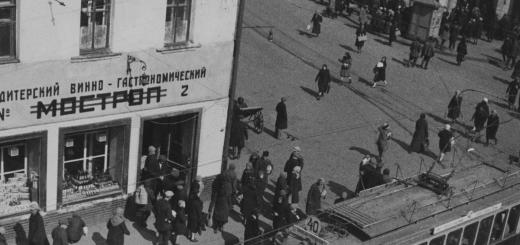We want to make Friday a short day (leaving an hour earlier)
Budget organization. It seems like it was once in the Collective Agreement, but not in the current version.
Is there any way to legalize this hour? (please give a link to the document - number-date)
If we write it down in the collective agreement, will it not be an inappropriate use of budgetary funds?
Under Russian labor law, the normal working week cannot exceed 40 hours. So 40 hours is actually the most common duration. To shorten on Friday, lunch is slightly shortened - for example, from an hour to 48 minutes. And everyone is happy. The legislation does not contain any rules regarding specific days of the week. There is a simple human logic at work here - everyone is especially eager to go home by the weekend.
To establish the duration of the working day and the working week, the enterprise must include this in its internal documents: the collective agreement, internal regulations. Well, in an employment contract with an employee, it is desirable.
The lunch break must be at least 30 minutes.
Art. 108 of the Labor Code of the Russian Federation. Breaks for rest and meals
The article states that during the working day, the employee must be given a break for rest and meals lasting no more than 2 hours and no less than 30 minutes, which is not included in working time.
It seems like there is Article 95 of the Labor Code of the Russian Federation, which says that on the eve of public holidays, the duration of the work shift is reduced by one hour. But there is no such law for every Friday. This can be prescribed within the team, but with the condition that during the week, not 1 hour, but 45 minutes will be spent on a lunch break. Thus, an hour for Friday is worked out, and the employees of the team have the right to leave on Friday an hour earlier.
As far as I know, many people add an hour on Friday - from 15 minutes from lunch breaks daily. Employees are given not 60, but 45 minutes for lunch, and so an hour and fifteen runs up, by which Friday is shortened. Therefore, you do not give employees this time, but simply transfer it.
If an enterprise increases working hours from Monday to Thursday by 15-20 minutes in accordance with the local working act, then Friday can be considered a shortened day, since according to the norms, working hours should not exceed 40 hours, that is, 8 hours a day.
Working hours are reduced by an hour only on the eve of public holidays.
If you work more than 40 hours a week, you have the right to make Friday a shortened day. On the days before the holidays, the authorities themselves will always go forward and make Friday a shortened day. If the organization is budgetary, then it is better to simply approach the authorities with this question.
In general, it seems that the legislation allows such issues to be regulated by internal rules in force at a particular enterprise. Mandatory rules are only the duration of the working week and the minimum lunch break.
Pre-holiday one hour shorter
Everyone knows that the pre-holiday day is an hour shorter. Legislators fixed this rule directly in the Labor Code of the Russian Federation (Article 95 of the Labor Code of the Russian Federation). It is also applicable to those employees who have a normal working time of no more than 40 hours per week (Article 91 of the Labor Code of the Russian Federation), and those who have reduced or part-time working hours. After all, the Labor Code of the Russian Federation does not provide for any exceptions for such categories of workers.
The norm of working hours in the week on which the pre-holiday day fell must be adjusted (due to the reduction of the pre-holiday day by 1 hour). And regardless of whether the organization works on a five-day or six-day working week.
Since the norm of working time is determined taking into account the fact that the pre-holiday day is one hour shorter (clause 1 of the Procedure, approved by Order of the Ministry of Health and Social Development of the Russian Federation of August 13, 2009 N 588n), this does not lead to a decrease in wages for employees.
If the holiday is established by the law of the subject of the Russian Federation

In turn, an organization conducting activities in this region is obliged to comply with the requirements contained in the regulatory legal acts of the constituent entity of the Russian Federation. And if a non-working day was established in the region in connection with a religious holiday, then the employer does not have the right to force his employees to work on this day. He can attract workers to work under such circumstances only in exceptional cases (Article 113 of the Labor Code of the Russian Federation). In addition, work on an additional non-working holiday will have to be paid double or provide another day of rest for workers (Article 153 of the Labor Code of the Russian Federation). That is, in such a situation, the same procedure applies as when engaging an employee to work on a non-working holiday, established by the Labor Code of the Russian Federation.
In other words, the establishment of regional non-working days in connection with a religious holiday should not reduce the scope of labor rights and guarantees laid down for employees in accordance with the Labor Code of the Russian Federation (Articles 5, 6 of the Labor Code of the Russian Federation). Therefore, in this case, they should also have a pre-holiday day shorter by 1 hour.

In the organization, the working day on Friday was reduced by 45 minutes (the categories of employees to whom this applies are not specified in the PWTR). By how much should the working day be reduced on Friday on the eve of a non-working holiday?
Lawyers Answers (6)

The duration of the working day (shift), the time of the beginning and end of work refer to the working hours (Article 100 of the Labor Code of the Russian Federation).
The working hours are established by the internal labor regulations, and for employees whose working hours differ from the general rules, by an employment contract (part 2, article 57, article 100 of the Labor Code of the Russian Federation).
The duration of working time on the eve of a non-working holiday is reduced by one hour (part 1 of article 95 of the Labor Code of the Russian Federation).
However, in some cases, there is no reduction in the working day (for example, in continuously operating organizations) (part 2 of article 95 of the Labor Code of the Russian Federation). This condition is fixed in the employment contract with the employee.
If the contract does not contain such a condition, then the duration of the working day on Friday, which is the pre-holiday day, must be 1 hour 45 minutes less than the duration of work on other days of the week.
Have a question for a lawyer?

Working time is the time during which the employee, in accordance with the internal labor regulations (hereinafter referred to as the PWTR) and the terms of the employment contract, must perform labor duties (Article 91 of the Labor Code of the Russian Federation).
They are not working time, but due to their functional purpose, the following periods are equated to it: breaks for feeding a child (part 4 of article 258, article 264 of the Labor Code of the Russian Federation), downtime (Article 157 of the Labor Code of the Russian Federation), a break for eating at the place of work (Part 3, Article 108 of the Labor Code of the Russian Federation), special breaks during working hours (Article 109 of the Labor Code of the Russian Federation, letter from Rostrud dated 11.04.2012 N PG / 2181-6-1), business trip period, inter-shift rest during time spent on duty, etc.
Yes, everything seems to be clearly written in the Labor Code of the Russian Federation - The duration of the working day or shift immediately preceding a non-working holiday is reduced by one hour.
continuously operating organizations and in certain types of work, where
it is impossible to reduce the duration of work (shift) on the pre-holiday
day, processing is compensated by providing the employee
additional rest time or, with the consent of the employee, payment according to
overtime standards.
On the eve of the weekend, the duration of work with a six-day working week cannot exceed five hours.
The internal labor regulations (hereinafter referred to as the IRTR) are a local regulatory act of the employer that regulates the procedure for hiring and dismissing employees, the basic rights, obligations and responsibilities of the parties to the employment contract, working hours, rest time, incentives and penalties applied to employees, as well as other issues of regulation of labor relations with this employer.
In accordance with Part 1 of Art. 91 of the Labor Code of the Russian Federation in the PWTR it is necessary to reflect the duration of the time during which the employee must perform labor duties, as well as other periods equated to working time. For example, in accordance with Part 2 of Art. 109 of the Labor Code of the Russian Federation, the employer is obliged to provide special breaks that are included in working hours, therefore, in the PWTR it is necessary to determine the duration of the work time itself, as well as the number of such breaks. The duration of the reduced daily work (shift) of employees not directly specified in the law, and other periods of working time should also be established by the local regulatory act of the employer.
Reduced working hours is a reduced working time compared to normal, which is a legal guarantee for certain categories of workers, depending on the nature of the work they perform. It should be remembered that, in accordance with Art. 6 of the Labor Code of the Russian Federation, it is the federal government bodies that establish in the regulations the features of the legal regulation of the labor of certain categories of workers, including reduced working hours.
Reduction of working hours may be associated with work in harmful and (or) dangerous working conditions, other features of labor activity or the age of employees.
Due to the fact that with both reduced and part-time work there is a decrease in normal working hours, it is necessary to understand the main differences:
1) reduced working hours are characterized by the following (Article 92 of the Labor Code of the Russian Federation):
Payment is established in the amount provided for normal working hours, with the exception of employees under the age of 18 (Article 271 of the Labor Code of the Russian Federation);
Working hours are established by federal laws;
This duration applies to certain categories of employees;
2) part-time work is characterized by the following (parts 1, 2 of article 93 of the Labor Code of the Russian Federation):
Established by agreement of the parties to the employment contract (employee and employer);
The initiative to establish part-time work may belong to any party (part 1 of article 93, part 5 of article 74 of the Labor Code of the Russian Federation);
This type of working time can be established regardless of the category of workers;
Wages are paid in proportion to hours worked.
Hello Karina! In accordance with Art. 95 of the Labor Code of the Russian Federation of December 30, 2001 N 197-FZ (as amended on July 3, 2016), the duration of the working day or shift immediately preceding a non-working holiday is reduced by one hour. Thus, working hours on Friday before the public holiday will be reduced by 1 hour and 45 minutes.
If you have any further questions, please get in touch! We will be happy to help you!
Looking for an answer?

It's easier to ask a lawyer!
Ask our lawyers a question - it's much faster than looking for a solution.
Friday is a short day according to the labor code

According to the requirements of the Labor Code of the Russian Federation, working hours on the eve of the holiday must be reduced by the employer by one hour. In the same way as all the requirements of the codified labor legislation, this requirement must be strictly observed throughout Russia, in all institutions that belong to the Russian Federation.
But very often it happens that an organized production process does not allow to reduce the working time of the day before the holiday. There are also cases when some employers do not want to reduce the working hours of the enterprise before the holiday. What alternative to the shortened pre-holiday day exists according to the laws of the Russian Federation, and what should be done in the case of intractable enterprise managers who do not want to reduce the pre-holiday working day?
What is considered a short pre-holiday day?
The pre-holiday day, according to the Labor Code, is the working day immediately preceding the day officially recognized as a holiday in the Russian Federation (according to Part 1 of Article 95 of the Labor Code of the Russian Federation).
It must be borne in mind that holidays are those holidays (there are eight of them) that are declared in Article 112 of the Labor Code of the Russian Federation (in Russia, holidays are from January 1 to 5 - New Year's celebration, January 7 - Christmas, February 23 - Day Defender of the Fatherland, March 8 - International Women's Day, May 1 - Workers' Solidarity Day, Victory Day May 9, June 12 - Independence Day of Russia, November 4 - Day of Accord and Reconciliation).
Short day at work and the labor code. Rules concerning the shortening of the pre-holiday day.
The pre-holiday working day, which is subject to reduction by 1 hour, must precede the holiday. If the holiday falls on a Monday, then Friday cannot be considered a pre-holiday day, and is not subject to reduction.
Part-time employees, employees working on a part-time or part-time schedule, enjoy all the rights to reduce working hours on the eve of the holiday, as the main staff of the enterprise (this rule is stipulated in Part 3 of Article 93 of the Labor Code of Russia).
If before some holiday there is a replacement of working and non-working days (for example, any day of the working week and Sunday are interchanged), then a working Sunday will be considered a pre-holiday day only when it immediately precedes the holiday itself. If this newly formed working day does not precede a holiday, then its working time is not subject to reduction.
In what cases can they not provide shortened working days? An alternative to shortening the working day before the holiday.
Since far from all institutions and organizations have the opportunity to grant employees the right to a reduced working day before the holiday, the Labor Code of the Russian Federation (part 2, article 95) provides for a situation without a shortened pre-holiday day. Such a rule is valid, as a rule, in organizations providing services to the population, organizations with a continuous production process, etc. The heads of these organizations are required to correctly draw up personnel documentation in order to use the opportunity not to shorten the working day before the holiday.
It happens that in one organization different employees may have the opportunity to work an hour less on the day before the holiday, or not have this opportunity - it all depends on the position, on the duties performed by the employees. Each head of the enterprise is obliged to compile a list of positions that are not given the opportunity to reduce the pre-holiday day, and approve it. When hiring employees for positions that are marked on the list, you should familiarize them with this list before signing a formal employment contract.
According to Part 2 of Article 95 of the Labor Code of Russia, each employer who has not provided his employees with a shortened pre-holiday day is obliged to compensate for it - by appropriate payment of funds for overtime or by providing additional time for rest at another time.
What to do if the employer extends the short pre-holiday working day
In some cases, there is an objective need not to shorten the pre-holiday working day - this is due to the specifics of the organization's activities or a continuously organized production process. To understand how overtime is compensated on the day immediately before the holiday, you need to familiarize yourself with the provisions of the Labor Code:
Work without a reduction in the pre-holiday day is considered overtime, and the employer simply does not have the right to leave this processing without payment or replacement with rest. The main option for compensation for overtime work on holidays is considered by the Labor Code to be the provision of additional rest time at other times (this is indicated in Part 2 of Article 95 of the Labor Code of the Russian Federation). Replacing this additional rest with cash payments is possible only with the consent of the employee himself.
An employee can use the extra time that he worked on an unreduced pre-holiday day to rest on any other day. It should be borne in mind that processing for one pre-holiday day without its reduction is equal to one hour. Such hours for working pre-holiday days that have not been reduced can be summed up and used by the employee at his discretion - for example, join the next vacation in the form of an additional one.
The employer has the right to decide when to provide employees with this most additional rest time. The organization in this case issues an order, which stipulates the rights of employees to reduce the next work shift on another day for an equivalent period of time, processed on the holiday day. Such a procedure for replacing overtime work with an alternative provided by the employer on another day should be enshrined in the organization's regulation on the procedure for compensating all overtime work, or noted in the employment contract with the employee.
If the organization works according to a shift work schedule, then employees who performed overtime work on the day before the holiday can be organized subsequent work shifts with a reduction in working hours. In this case, the management may not issue additional orders for compensation for overtime worked, because shift schedules are signed by the employees themselves, who can immediately familiarize themselves with the procedure for providing them with additional free time (this is stipulated in Article 103 of the Labor Code of Russia).
If compensation for processing time occurs at the discretion of the employee, then organizations should issue orders or notices (under signature) that the employee has the right to compensate for additional time. The organization, in this case, should develop a special form for submitting an employee’s application for an additional period of rest, taking into account processing on the holidays, and the time should be specified when such an application should be submitted to the employee.
According to the Labor Code of the Russian Federation, there is no restriction on the period when compensation can be provided to an employee in the form of an additional period of rest, therefore, in each organization, these periods are established by internal acts of the organization.
If the heads of the organization do not provide employees with any compensation for processing on the holidays, or if the documentation on compensating working time with additional rest is incorrect in this organization, then this threatens the management with administrative responsibility, and maybe even suspending the activities of this organization (according to Article 5.27 of the Code of Administrative Offenses of the Russian Federation ).
Compensation for overtime can occur with the consent of the employee himself, but not on his initiative - the management of the organization comes up with such a proposal, and the employee has the right to agree or disagree with him. An application for compensation for processing money from an employee by the leaders of the organization may not be considered - it is not binding. The management of the organization, in turn, may offer the employee compensation for processing in cash, but is not at all obliged to do so.
The employee should be aware that in the case of monetary compensation for overtime on holidays, the first two hours must be paid at one and a half times (according to Article 152 of the Labor Code of Russia).
In the event that an employee agrees to monetary compensation for processing on a pre-holiday day, he must necessarily issue it in writing by submitting an application to the management. Management has the right to notify employees of the possibility of providing monetary compensation both in writing and orally.
Based on the statements of employees about their agreement with the provision of monetary compensation for processing, the organization issues an order for monetary compensation. All processing documentation must be filed in the personal file of each employee of the organization.
If the management of the organization does not provide compensation for overtime work on the day before the holiday by providing an additional period of rest or in cash, this is a gross violation of labor laws adopted in the Russian Federation, a complete disregard for the requirements of the Labor Code of the Russian Federation. In this case, the employee has the right and must apply to the management of the organization with an application for compensation for overtime work on the days before official holidays, and the parties will have to discuss the method and time of providing compensation additionally, in accordance with the existing procedure under the Labor Code of Russia.
Who doesn't love Friday? Probably only those who study or work on Saturdays. For everyone else, this day of the week is the last working day, and therefore the first day off. From this day on, people start celebrating holidays. Some note to such an extent that they wake up only on Monday. Start preparing for the end of the work week at the very beginning. Choose a cool status about Friday and publish it on your page on a social network. You can choose right on this entertainment portal. Here we have posted statuses only about Friday, so you do not have to search all over the Internet for a funny status. To post or send to friends as moral support.
I worked hard today, and realized that today is Friday only when at 4 o'clock with a cry of "Who is the last - that sucker!" ran away director
The soul waited with admiration for Friday, and the liver and kidneys waited with horror for Monday.
Monday morning began, as always, unexpectedly - after Friday evening.
We all work according to the Robinson Crusoe method - we are waiting for Friday!
It is difficult to protect the liver from bad ecology. Especially on Fridays
Cool status about Friday: Better than Friday - only Saturday
The scribe comes unnoticed - on the night from Friday to Monday ...
If there is a pack of cigarettes in your pocket, and a bottle of red wine in your bag during the lesson, then Friday starts with a bang.
It can happen to anyone! A box of vodka on Friday attacked two men and took away their entire salary!
Yesterday was Friday, tomorrow is Saturday, and today what then?
On Thursday I drank, on Friday I drank, on Saturday I drank, and on Sunday I slept, but I dreamed that I drank!
Thursday is good because after Friday comes Saturday. Remember this Wednesday
If earlier people dreamed of reaching for the stars, now it is enough for many to hold out until Friday evening
Cool status about Friday: Let everything in life pass by, except for Fridays, money and intimacy.
I won't drink anymore. I definitely won't because of you. I won't do so much. Never. Until Friday...
On Friday, I promise myself not to go online on the weekend, but to go for a walk with friends, go to a cafe. But waking up on Saturday, I understand that I have no friends, and money for a cafe, too.
If you start drinking on Friday evening, then there will be eight days in a week: five working days and three days off.
Oh, not in vain ... It was not in vain that Robinson called his friend Friday, otherwise it was all Saturday and Sunday, and Saturday and Sunday - and after all, one could sleep to the green devils!
Do the words "drunkard" and "Friday" sound similar by chance?
You're late for work for the fifth day in a row. What conclusion do you think I should draw? - That today is Friday.
Friday! It's time to experiment on the body.
Pensioner Petrova named her daughter Friday, so as not to forget when the “Field of Miracles” was.
Thoughts with a hangover: "Yesterday was Friday, tomorrow is Saturday ... God, what about today? .."
Only on Friday afternoon you understand: in principle, you can live.
I don’t drink anymore ... finally! - What is it? - I returned from work on Friday, tired as a dog. I decided to stay at home, dived under the covers and drank a whole bottle of cognac. - So what? - Then they saw me in three restaurants in that blanket ...
I ask you to consider the conscience lost from Friday to Saturday invalid.
Cool status about Friday: Leaving work, I try my best not to run ...
Entrepreneur Saul Orwell shares his experience on how not to spend Friday idly waiting for the weekend
Let's be honest. For most people, Friday is a day wasted.
Imagine your typical work Friday. You are probably being lazy (just a little bit) mixed in with some work stuff. Internally, you have already switched off, tired of the working week. The emails are starting to pile up. Doing quality work is getting harder and harder.
Believe me, I speak from my own experience. My typical Fridays were odes to procrastination. I started reading about sports, then got on Reddit (and we all know how much time it can gobble up). Then it was Facebook's turn, and I spent several hours chatting with my buddies. Meanwhile, it was 2 o'clock in the afternoon, and I had not done anything significant.
I realized that something needs to change. As an entrepreneur with multiple business projects, I couldn't afford to lose a full day of work. I'm sure you do too.
Well, Fridays haven't really become a full day off, but they have become more fun and productive and help me recover. I want to show you how it works so you can replicate my experience.
It's all about how you perceive Friday. Instead of using this day for hard work, dedicate it to three things that you usually don't get your hands on during the week: learning, networking, and planning.
1. Use Fridays for Focused Learning
Derek Sievers argues that it's important to set aside blocks of time that are free from busy work (email, ongoing project tasks, meetings, and so on) so you can invest your energy into learning, growing, and strategizing for your business.
Entrepreneurs often get too overwhelmed with sales, clients, and project promotion to devote enough time to these essential tasks.
Now most of Friday I read. During the week, when I find interesting articles, I toss them into Evernote. You can also use other apps like Pocket or Feedly to save articles and come back to them later.
On Friday, I open the articles I've saved for the week, go to a coffee shop, turn off the Wi-Fi, and start reading. I take notes on what I've learned from what I've read and often think that I know someone who would also appreciate this article (a great way to improve connections).
The main thing here is to turn off the Internet and completely immerse yourself in reading and studying. This allows you to achieve what Cal Newport calls deep work: instead of jumping between projects, answering emails, and checking work chat, you devote all your attention to one task.
2. Use Fridays to Cultivate Valuable Connections
Understanding the effectiveness of relationships is priceless. Getting to know the right people can open up opportunities that you can't access in any other way. But it's not enough to exchange a few emails with a VIP or say "hello" at an event - you need to build a serious relationship.
Fridays are a great time to develop connections. I like non-standard approaches. I run into the local bakery store, text a few people, inviting them to chat. I say something like, "I'll treat you to the best chocolate chip cookies in Toronto."
Depending on who comes, we spend several hours talking about successes, failures, and just getting to know each other better.
There are several reasons why this works well on Fridays. First, people are in anticipation of the weekend and are generally in a more sociable mood. They are ready to leave the work week behind and have some fun. In addition, their thinking is relaxed, and this opens up opportunities for deeper and more meaningful conversation.
And it is these meetings, this communication that really develops your ties.
As a rule, these meetings are group meetings, and this allows me to connect with a much larger number of people than if I had meetings or telephone conversations with each one individually. As a result, I've become known in local circles as a good resource for meeting interesting and successful people - I'm seen as a networking hub.
If you're not ready to host these Friday nights, take some time to thank and appreciate the people on your social network. I tend to tweet a lot on Fridays (sharing what I read) and I always thank the author for giving us the opportunity to connect.
3. Use Fridays to Plan Your Week
Tim Ferris said, "What you do is more important than how you do it, and if you do it well, it doesn't matter."
The reality is that most people exaggerate their ability to plan. Many of us are not very good at this, but planning ahead is essential to success.
Now on Fridays I dedicate at least one hour in the afternoon to planning. First, I review my planner to evaluate what I achieved and failed at this week. Then I use it as a guide to set my goals for the next week. When Monday rolls around, I already have an idea of what the coming week will look like, and I can get to work.
There are three main reasons why Friday afternoon scheduling is so effective:
1) If planning is the last thing you do on a Friday, then the plan will be fresh in your head when you get to work on Monday and you'll be ready to get to work right away.
2) The Theory of the Unconscious states that during the weekend your brain will continue to work on the problems that you outlined on Friday afternoon, even if you are busy with something other than actively thinking about these problems. This means that by Monday morning you may find some fresh ideas.
3) Reviewing the past week and then planning for the next one implies some kind of closure that allows you to fully enjoy the weekend. The physical action of closing the planner serves as a signal: "Your week is over, now enjoy the weekend."
Take back Friday
Now I always look forward to Friday - not only because it means a long-awaited weekend, but also because it is a great time to learn something new, build deep relationships and prepare for the week ahead. Before I developed this system, I was afraid of Fridays. They took place in anticipation of the weekend, and I rarely managed to do anything significant. Now, in the time that I used to spend on the Internet, I was able to personally meet with more than 200 entrepreneurs.
Better planning has made my workdays less hectic, allowing me to focus on growing my business. On Monday, I come to work fresh, inspired, and ready to hit the ground running.
How do you spend your Fridays? And what lesson did you take away from this article?
On Monday you always want to sleep, Wednesday is a small Friday, real Friday is a short day, and on Sunday it is better not to start business. The Secret tells why we feel overwhelmed on some days of the week and can't focus on others, and how to find time to work if something is wrong with almost every day of the week.
Why not work and not rest
If psychological research is to be believed, most days of the week are only designed to injure and disorganize people. For example, it is believed that Monday is the hardest day. Psychologists explain this by the fact that people experience stress when returning to work after the weekend. Mental and physical health are at risk. Monday syndrome affects not only those who work from Monday to Friday, but also people with irregular working weeks and those who do not work at all. Several different studies conducted in the 90s showed that the highest number of suicides occurs on Mondays, and on Mondays the number of strokes and heart attacks also increases. At the same time, even pensioners have heart problems most often on Mondays - the old attitudes are so strong that, even after going on a well-deserved rest, at the beginning of the week, many people feel overwhelmed.
In 2015, psychologists from the Universities of Lincoln, York and Hertfordshire brought together a group of volunteers to find out how people perceive the days of the week to differ. Speaking about Monday, the majority of respondents used the words “boredom” and “tiredness”, and they associated Friday with fun and freedom. At the same time, every day the participants in the experiment were asked what day of the week it is - it turned out that 40% of people can answer this question without hesitation only on Monday and Friday. In the middle of the week they were confused and could not decide whether it was Tuesday, Wednesday or Thursday. But one thing was clear: no one likes Monday, and everyone likes Friday. True, no one likes to work on Fridays either. As a rule, on this day people make plans for the weekend, come to the office in jeans and go home early. According to psychologists, at the end of the week people feel happier, freer and more relaxed, but this does not motivate them to work.
Sunday is not good either. In English, there is the concept of Sunday night blues - these are anxiety attacks that happen on the eve of a new working week. According to statistics, approximately 81% of Americans experience anxiety on Sunday evenings. Someone at such moments simply does not find a place for himself, cannot fall asleep quickly or tries to get to work without waiting for the morning. Some people have panic attacks, and then on Monday morning these people feel even more overwhelmed and depressed.
In addition to Sunday night blues, there is also the "school diary syndrome" - it is described by Russian psychologist Andrei Karelin in the book "Psychology of Change". He believes that a person from childhood gets used to imagining a week as two pages from a school diary - everything starts on Monday and ends on Saturday. On one sheet - a difficult and boring beginning of the week, where all three days are training. On the other - the second half of the week, where Saturday is a day off or a shortened day. There is no Sunday in this scheme, and many, having become adults, habitually “miss” Sunday, do not consider it a full-fledged day on which at least something important can be done. Because of this, on Monday morning, many do not feel rested and refreshed, and Sunday flies by somehow imperceptibly and blurry. For those who suffer from the “school diary syndrome”, the psychologist advises to imagine those very two pages from school times with Sunday pasted into them, painted in bright colors.
Wednesday is also not the most favorite day of mankind. Scientists from the University of Sydney, trying to figure out how our mood changes depending on the days of the week, interviewed a group of 200 people every day, and then of 350 people and came to the conclusion that volunteers are worst on Wednesdays - last weekend is behind us, and before the next ones are still far away, and not only office workers who hate their work, but also motivated workaholics suffer from this. Firstly, even fans of their work after a few days of work want to change the situation, and secondly, the “school diary syndrome” subconsciously overcomes everyone, regardless of motivation.
Progress is for the unfortunate
So, we have very good reasons not to work on Monday, Wednesday and Friday and not to start the work week on Sunday. On Saturday, most of us want to relax, sleep and take a walk, and some even have Shabbat. It turns out that only Tuesday and Thursday remain for active work.
Indeed, according to psychologists, Tuesday is the most successful day for work, when the fears and doubts of Monday are already behind, and the depressive environment has not yet arrived. The letters and messages that have accumulated since the end of the week have already been sorted out, and people are moving on to the most difficult cases before they get tired and think back to the weekend.
In 2012, Professor Todd Thrash of Williamsburg, a lifelong student of inspiration, gathered a group of volunteers and used a questionnaire to find out how happy and inspired they feel on different days of the week. It turned out that for most people, bursts of inspiration happen on Tuesdays. It is believed that it was on Tuesday that Thomas Jefferson came up with his Declaration of Independence. At this time, he was away from home, had just learned that his wife was terminally ill, and a few days before that, his child had died.
The participants in the experiment experienced bouts of happiness on Fridays, just on those days when they were least attuned to work and did not experience any inspiration. That is, with Tuesday, “the most successful day for work,” not everything is so simple either.
The famous American psychologist Nick Tasler, in his column, reflects on how the feelings of happiness and inspiration relate to each other, and comes to the conclusion that they almost contradict each other: a person works most productively in those moments when a lot of problems fall on him and he tries to do everything at once, that is, in the middle of the week. The psychologist believes that there is nothing wrong with this, and in general, happy and stupid Fridays are greatly overrated.
“I have nothing against happiness,” says Tasler. - But often when we strive for happiness, we neglect inspiration. Thinking about coming Friday, you can miss the benefits of Tuesday. According to Tasler, Tuesday is the day we most often forget about later. On Tuesdays there are no noisy parties and romantic meetings; something important is rarely planned for this day. But it is on Tuesday, digging into the routine and solving a bunch of problems at the same time, that we imperceptibly make breakthroughs. So, according to the psychologist, maybe it’s better to look forward every week not to Friday, when people are cheerful and unproductive, but to Tuesday, the day when we will be unhappy, but maybe we will do something really important. But is progress worth happiness - each of us decides for himself. By the way, according to statistics, on Tuesday people are the least likely to have sex - this also says a lot. Thursday remains the only more or less decent day of the week, and, according to studies, no one takes it seriously, because everyone confuses this day with Wednesday.
The power of stereotypes
There are other statistics: scientists from the University of Toulouse in 2001 found that the Irish, who often spend their weekends in bars and pubs, on Monday suffer from high blood pressure more often than the French - they usually do not drink too much on weekends and at the beginning of the week feel the same as every other day. Here the question arises: is Monday really an unconditional evil that drives us into stress, or is the syndrome of the beginning of the week a result of habits and a consequence of stereotypes, like all other syndromes associated with the days of the week?
In 2008, scientists from the University of Sydney conducted a study: 202 volunteers told how they feel and what their mood is for a week in the morning and evening. When the week was over, the participants were asked to sum up: to say which day of the study they liked the most, and which they liked the least. It turned out that for most people, Monday was remembered as the worst day of the study: 65% of volunteers said that Monday morning was the worst morning for them, and Monday evening was the worst for 35% of participants (it turned out that about Friday and Saturday many, on the contrary, have pleasant memories - 43% felt good on Friday morning and evening, and 45% on Saturday). But at the same time, while the participants were interviewed every day, such a pattern was not observed - on Monday everyone felt completely different, as on the rest of the week, and only in the memories it was postponed by most volunteers as a “bad day”.
According to researcher Richard M. Ryan of the University of Rochester, in a world with a seven-day work week, Monday is a social construct, much like gender stereotypes. At school, we go through "War and Peace", where a childless and unmarried girl is called a "barren flower", and we get used to the fact that a woman's destiny is to get married and give birth to children. Likewise with Monday. Everyone around says that "Monday is a hard day", and bars and restaurants are named after other "entertainment" days - for example, T.G.I. Friday's. As a result, even those who have an irregular work week begin to perceive the weekend as a respite, and Monday as a punishment.
Trying to answer the question, what is wrong with all the days of the week, we end up with another question - what is wrong with us? Over the years, we are getting rid of stereotypes about the people around us, progressive humanity no longer tells women that the “biological clock is ticking”, and gays are no longer subjected to compulsory psychiatric treatment. But the perception of the days of the week remained at the level of the times of Henry Ford. Although many have work meetings on the weekends and allow themselves to sleep in on Mondays, people still repeat that “Wednesday is a little Friday”, “Monday is a hard day”, “Friday is a debauchee” and many more platitudes that interfere concentrate on work and make all the weeks the same, just like in school days, when we measured our lives according to the diary and there was no Sunday in it.
Cover photo: EPA
By nature, Friday is a relaxed, laid-back day, as they say. The relaxed, rustic casual style on Fridays was conceived as an indulgence on the part of corporations to their employees - they say, guys, today we don’t talk about business seriously and divide at least one of the corporate rules (actually, the dress code) by 16. Perhaps the working day starting from lunch, would have worked better, but back to history. Since Hawaii legalized Hawaiian shirts in offices on Fridays in 1947, there was not much news about "free Friday" until the 90s. At the end of the previous decade, at the dawn of the Internet era, many young companies, such as Google, adopted the free style on Fridays as a rule. Globalization has helped spread this trend around the world, but, alas, the requirements of each particular company are still at the forefront. Somewhere you can come to the office in shorts, and somewhere in jeans you will be afraid to get up from the table once again.
Today, instead of advocating a relaxed but sensible approach to the Friday bow, many go to completely inappropriate extremes. And while some people experiment with frightening persistence with the boundaries of good taste, others treat Friday as a hangover day off and come to the office unless they are in their pajamas. If you do not know the exact rules, it would be nice to ask the management directly - you should not silently take an example from the boss: what if he is personally magically allowed to do something for which others will inevitably be blacklisted? Ask specific questions: Do you need a shirt or are T-shirts enough? Can I wear sneakers as well as jeans and chinos? Once you set the rules, small breaks can become your own style. Perhaps a round neck and a scarf make up for the collar, and a pair of dark suede sneakers will replace the brogues. Take small risks, feel for the ground, avoiding blatant disrespect for corporate requirements. And then get a separate wardrobe of several looks especially for This Day.
Information leak
Often casual clothes that are too tight or, conversely, falling off, give others too much detail about your anatomy, which in no way contributes to your business reputation. Skinny jeans, deep V-necks, low-rise trousers, and see-through fabrics are out of place in the office. Make sure you can carry your outfit through eight hours of work with dignity. Your guidelines: tapered, not narrow, figure-fitting, not tight.
Paul Smith trousers, Rick Owens longsleeve, CB Made in Italy moccasins
Detailed report
Colored loafers, a silk scarf, a vintage belt, or even a discreet print are the right accents for a discreet look. Stop at one detail - this is quite enough to win over colleagues. The more your personality is read in this accessory, the better.
Dolce & Gabbana shirt, CB Made in Italy loafers, Ermenegildo Zegna trousers, Truzzi shirt, Ted Baker loafers
Within budget
Avoid deliberately expensive things - logo buckles, T-shirts with prints or painfully well-known monograms, noticeable brand name patches and any other things that, alas, help you to assert yourself in everyday life, carry the wrong message in the office. You don't want co-workers to gossip about why you're making more money than they are, or worse, continue to see you as a dummy with no style or personality of your own. Great quality items without full-back logos make a much better impression. Keep the look simple and sophisticated - with a little bit of unusual textures, delicate prints or eye-catching color.
Folk trousers, Lanvin shirt, Valentino boots, Lanvin shirt, Giorgio Armani trousers
Security Service
Is your personality bursting out like that? Keep her on a long but still leash. Colleagues do not have to get acquainted with your entire collection of Zenith scarves, know all the cubes on your abs, or even guess about your love for lycra tops. A passion for plaid shirts or a fondness for Lacoste products is enough for a lunchtime discussion. An extreme fashion statement is like showing up to work drunk. Excitement and imaginary prowess will quickly come to naught, but the sediment will remain. Even on a free Friday, your creativity and informality should take no more than 25% of the image as a whole. Experiment with classic, but not business styles - add British tweed, a safari-style jacket or chinos. In the end, wear moccasins on bare feet.
Maison Martin Margiela trousers, Glanshirt shirt, Kris Van Assche jacket, Tod's moccasins
Cross training
Strive to find a balance between smart and casual. Mixing formal and casual is the perfect formula for Friday, where each of these parts justifies the existence of each other. The easiest way is to pair a formal jacket or trousers with basic everyday items.
He by Mango pants, Bobby Jones polo shirt, Boglioli jacket, Hugo Boss sneakers
Team building
No one likes too serious guys looming in their suits among Friday-dressed colleagues. Try not to go against the collective, even if the jeans and you are on different ends of the universe. Combine chinos with slim shirts and light blazers. After all, Friday only happens once a week.
Woolrich trousers, Ted Baker shirt, Basicon jacket, Salvatore Ferragamo boots
Yana Windsor










